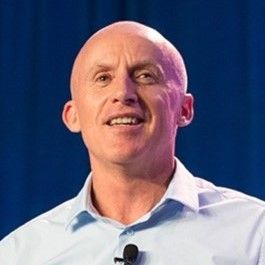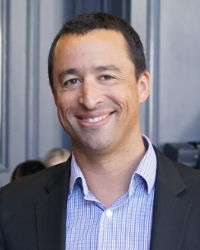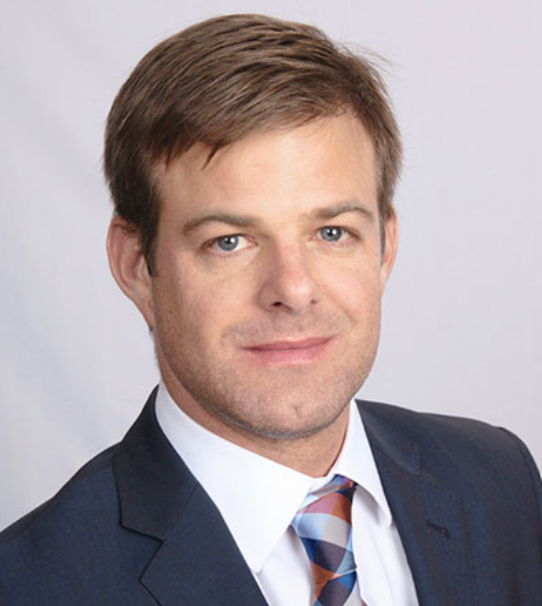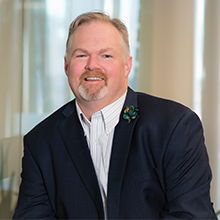The $8 trillion Malvern. Pa. asset manager signed a deal with Retirement Clearinghouse to address its $1.8 billion of recordkept plan assets, which add to universally despised pension 'leakage' that drains minority-held accounts
Brooke's Note: As a former telecommunications reporter, this article brought back all the head-banging stories I used to write about the insane advancement of dense-wave-division multiplexing. A wee wire could carry the whole Internet's traffic coast-to-coast in a nano second only to give back all those gains in what the pundits called the "last-mile." That mile was more like the last 100 yards in many cases from the telephone pole to the living room where copper wires and antiquated switches drowned in the data flow pumped through optical networks. The defined-contribution pension system is hitting critical mass with similar critical deficiencies. The $10 trillion US pension system is a free market solution and that breaks down for the people who need it most. Accounts are stuck in a non-digital world and become fragmented and often -- perversely -- the participant's incentive is to cash out their savings. Pensions are about creating a place for risk assets to stay invested across decades. The free enterprise system that makes money investing and recordkeeping 401)k) assets has yet to find the economic self-interest to then be sure the spirit of pensions is honored by engineering that last mile to reap steady accumulation through a consolidation of assets nurtured by the power of compounding interest and equity gains. This article shows there is hope, in part, because Vanguard's mission straddles the love of profits and the Bogle belief that it needs to serve a broader purpose. But Vanguard was prodded by an entrepreneur with an equally large altruistic passion and what could be a very profitable business model.
Vanguard Group is introducing an oxymoron -- the portable 401(k) account -- with help from a firm that openly hopes to leverage Vanguard's deal to convince Fidelity Investments to open its 401(k) trillions to what MBAs call 'coopetition.'
The $8-trillion Malvern, Pa., mega-manager announced Tuesday that it hired Retirement Clearinghouse (RCH) to make it radically easier for a 401(k) plan participant to pack up their pension assets with their lunchbox and pocket calculator in a job switch.
Launched in 2001 by Black Entertainment Network (BET) founder Robert Johnson, the Charlotte, NC, company works with plan sponsors and service providers to move participants' retirement savings forward, solving the small account problem.

RCH is providing Vanguard with the missing API link to prevent a recordkeeping system version of organ rejection, according to RCH CEO Spencer Williams.
“As part of Vanguard’s mission to serve all investors, we have a long legacy of challenging convention and pursuing innovative solutions that help improve outcomes for millions of retirement savers,” said John James, managing director and head of Vanguard Institutional Investor Group in a release.
“Together with RCH, we aim to help the most vulnerable plan participants combine their retirement assets, capture the vast benefits of a 401(k) plan, and enhance their overall financial wellbeing."
The service is expected to launch in mid-2022.
Boston-based Fidelity is, by far, the nation's largest 401(k) and defined-benefit recordkeeper with about $3 trillion administered.

The company and other giants continue to face thorny issues about sharing out of enlightened self-interest. See: Tired of having their screens scraped, Schwab and Fidelity launch API initiatives to curtail the practice -- rewarding some, but not all scrapers with cleaner data
Fidelity spokesman Michael Shamrell declined to comment for this story, but Fidelity has partially address the problem by creating a means to manage 401(k) assets wherever they get stranded. See: Fidelity Investments rewrites the 401(k) rollover script by allowing plan participants -- with a small catch -- to skip the IRA and have the plan sponsor hold the account post-employment
But that solution has its own flaw when its comes to sub-$5,000 accounts.
Right now, 82% of Vanguard's 401(k) plans require the participant to cash out when he/she leaves for another firm, if the 401(k) account balance is between $1,000 and $5,000.
That requirement doesn't mean that they must get an automatic distribution, but it requires the participant to make a decision to take the money out or move it to another retirement account.
Because so many firms have a cash-out requirement, it's simply easier to get a distribution than complete the red tape to roll over a plan.
In 2019, an estimated $92 billion typically leaves the the U.S. retirement system annually due to job-changing participants, who cash out their 401(k) savings programs when they switch employers, according to the Employee Benefit Research Institute.
The problem, known as "leakage," is real and damaging, says Mike Alfred, a 401(k) observer, who co-created Brightscope, a financial information company providing services for retirement planning and wealth management.
"This leakage issue is real and substantial. I've always thought more digital connectedness between the 401(k) plan system and rollover IRA platforms would help create more continuity for retirement savers," he says.
A lot of people have worked on the problem but the analog nature of the business has been a hurdle historically. Seems like a potentially promising partnership here."
Indeed, RCH's software is delivered on a neutral server that Fidelity may yet see the wisdom in sharing.
It automates the movement of an employee’s 401(k) savings account from their former employer’s plan into an active account with their current employer’s plan, according to RCH CEO Spencer Williams.
RCH claims it's the industry’s first automated transfer of retirement savings from a Safe Harbor IRA into an employee’s active retirement account.
"Fidelity could do it by themselves but they have to get the contracted technology of all of the recordkeepers and that seems unlikely as opposed to connecting with us, and we connect to all of the recordkeepers," says James.
Vanguard's buy-in with the portability vendor came after RCH establish a modest track record by consolidating more than 290,000 retirement accounts with more than $10 billion in assets into existing 401(k) or IRA accounts .
Vanguard is RCH's second recordkeeping client, having piloted the service with Alright Solutions, a recordkeeper with 5 million participants.
Johnson's desire to tackle the problem of 401(k) recordkeeper castle walls led to the creation of RCH's portal, out of concern for the impact of the current system on minorities.

"Our industry must safeguard against retirement plan leakage, which particularly affects black and brown workers and is contributing to a systemic issue of savings insufficiency in these underserved demographics,” Johnson said in a statement.
Johnson told Black Enterprise magazine in 2020 he was hopeful recordkeepers like Vanguard and Fidelity would embrace auto portability to generate $191 billion in retirement savings for 20 million black workers over a generation.
The Department of Labor (DOL), which oversees the retirement market, granted RCH an exemption in 2019 allowing the company to offer automatic rollovers in certain instances. An automatic rollover is similar to automatic enrollment in a 401(k) and can be accomplished if certain conditions are met, Williams, explains.
The 401(k) plan must include an automatic rollover in its plan design, which participants give consent to when they sign up.
The automatic rollover will take place if the 401(k) plan has mandatory distribution for accounts less than $5,000 and the staffer taken a job at another firm.
If that criteria is established, then RCH sends two letters to the participant. If there is no response, then RCH can roll over the money to the person's new firm.
RCH is limited by DOL to a charge of no more than $59 for the rollover service, and it can be less depending on the amount in the retirement plan.
Getting the green light from the DOL shows the momentum of this program, says Jason Roberts, CEO of Pension Resource Institute.

"There's a demand to find solutions like this and help employers so they don't have so many terminated participants on forced-out balances with less than $5,000."
Auto portability makes the process a breeze, Williams says.
"Today, when people change jobs, they only have one choice: Do it yourself. This is a new alternative which replaces the DIY burden on an individual with an automated process.
"It's a classic negative consent structure. We give you the opportunity to opt-out. You can opt-out at any time until we move the money."
Convincing former staffers to keep their retirement plan alive rather than cashing out seems to be the emphasis of employers and the DOL, Roberts says.
"The technology is now available to keep people united with smaller balance accounts which s what they're doing and the DOL is ramping up scrutiny on plan sponsors to track down terminated participants."
The portability rollover makes the process easier for recordkeepers, adds Scott Smith, an analyst with Cerulli Associates.

"It limits both routine service-cost exposure to small-balance former participants and avoids some of the most onerous service examples like having to track down former participants who have moved a few times," he explains.
When participants move small 401(k) balances to an IRA, the fees are also often higher. And, that's one reason that people choose to cash out altogether, Williams says.
But more than that, cashing out can leave a lot of money on the table over time.
A 30-year-old participant who cashes out a 401(k) account with $5,000, today, would forfeit up to $52,000 in earnings they would have accumulated by age 65, assuming the account would have grown by 7% per year, according to RCH.
Over the 30-year period from 1991 to 2020, the market's average nominal return was 10.7% and the annualized real return, adjusted for inflation, was 8.3%, according to financial references.
On thing is certain, the market for RCH's services is huge. An estimated 14.8 million participants switch jobs every year, according to the Employee Benefit Research Institute (EBRI).
Data from the largest plan recordkeepers indicates that 31% of these participants prematurely cash out their 401(k) savings accounts within one year of arriving at another employer.
EBRI states that under partial auto portability those currently 25 to 34 are projected to have an additional $659 billion in retirement savings.
"Participants benefit in that it offers them a path of least resistance to consolidating assets in their current active plan," says Smith.